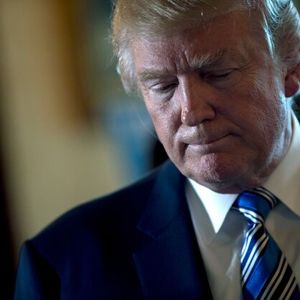Imagine a world where the United States Treasury holds significant amounts of Bitcoin alongside gold, foreign currencies, and bonds. While it might sound like something out of a futuristic novel, major financial institutions are starting to explore this very possibility. A recent report from investment banking giant Morgan Stanley has ignited fresh debate, suggesting that Bitcoin U.S. reserve asset status might not be as far-fetched as some believe, though significant hurdles remain. What Did the Morgan Stanley Bitcoin Report Reveal? According to insights from The Crypto Basic, the core of the Morgan Stanley Bitcoin report centers on Bitcoin’s sheer size. With a market capitalization hovering around $1.87 trillion (figures can fluctuate), Bitcoin has grown large enough to be considered alongside traditional reserve assets. The report indicates that holding between 12% and 17% of Bitcoin’s total supply could align with conventional standards for national reserves. This isn’t just a theoretical exercise. For an asset to be considered a viable reserve, it typically needs deep liquidity, a significant market size, and a degree of global acceptance. Bitcoin, despite its relatively young age compared to gold or major fiat currencies, is starting to tick some of these boxes, at least in terms of market valuation. However, Morgan Stanley was quick to temper expectations. While the market cap is impressive, the report explicitly highlighted that Bitcoin’s notorious volatility remains a major challenge. Reserve assets are meant to provide stability and confidence, not subject a nation’s wealth to wild price swings. Unpacking the Strategic Bitcoin Reserve Proposal The discussion around Bitcoin as a U.S. reserve asset isn’t happening in a vacuum. It’s closely linked to a growing, albeit controversial, movement advocating for a Strategic Bitcoin Reserve . This proposal, gaining traction among some policymakers, suggests the U.S. should proactively accumulate Bitcoin as a strategic national asset. Proponents argue that such a reserve would: Act as a Hedge: Potentially protect against inflation and the devaluation of fiat currencies. Ensure Future Relevance: Position the U.S. at the forefront of the digital asset revolution. Diversify National Wealth: Offer an alternative to traditional assets that may face different economic pressures. Strengthen National Security: Potentially provide a non-sovereign asset base less susceptible to political pressure tied to fiat systems. This idea, however, faces considerable opposition. Critics raise concerns about the risks involved, the lack of historical precedent for a nation holding such a volatile and decentralized asset, and the potential political fallout from significant losses if the market declines. The Double-Edged Sword: Potential Benefits vs. Bitcoin Volatility Risk Let’s delve deeper into the core tension identified by Morgan Stanley: the potential benefits versus the significant risk. The allure of holding a Bitcoin U.S. reserve asset is clear for its proponents: Diversification: Bitcoin’s price movements have historically shown low correlation with traditional assets like stocks and bonds, offering potential diversification benefits to a national portfolio. Inflation Hedge Narrative: Often dubbed ‘digital gold,’ Bitcoin’s fixed supply (capped at 21 million coins) appeals to those seeking a store of value resistant to inflationary pressures caused by excessive money printing. Potential for Appreciation: While risky, the long-term growth trajectory of Bitcoin offers the possibility of significant returns, potentially increasing national wealth. Embracing the Digital Future: Holding Bitcoin signals a nation’s readiness to engage with the evolving digital economy and potentially participate in future decentralized financial systems. However, these benefits are shadowed by the substantial Bitcoin volatility risk . Unlike gold or stable government bonds, Bitcoin’s price can swing dramatically – 10%, 20%, or even more in a single day. For a national reserve, which is meant to be a bedrock of economic stability and confidence, such volatility is deeply problematic. Imagine the public reaction if a significant portion of the nation’s wealth were to drop by billions or trillions of dollars overnight due to a market correction. This inherent instability is the primary reason why central banks and treasuries have been hesitant to embrace Bitcoin as a core reserve asset, despite growing institutional interest. Beyond Borders: The Global View on Cryptocurrency Reserve While the U.S. debate is prominent, the idea of a Cryptocurrency reserve is being quietly considered in various forms globally. El Salvador famously adopted Bitcoin as legal tender and holds some Bitcoin on its balance sheet, though this is a unique case for a smaller economy and differs from a large-scale reserve strategy for a major power. Other nations are exploring Central Bank Digital Currencies (CBDCs) as a digital evolution of their fiat currency, which is a different concept entirely from holding decentralized cryptocurrencies like Bitcoin as a reserve. The global landscape shows a mix of curiosity, caution, and outright skepticism towards integrating decentralized cryptocurrencies into national balance sheets. No major developed nation has yet signaled concrete plans to establish a significant Cryptocurrency reserve based on Bitcoin or similar assets, primarily due to the same risks identified by Morgan Stanley – volatility, regulatory clarity, and security. What’s Next? Navigating the Future of Digital Reserves The Morgan Stanley report, coupled with the ongoing debate around a Strategic Bitcoin Reserve , underscores a critical juncture in global finance. It highlights that major financial players are seriously evaluating the potential role of digital assets like Bitcoin at the highest levels. For investors, this ongoing conversation is significant. It suggests continued institutional interest and potential future adoption, which could influence market dynamics. However, it also reinforces the need for caution and a clear understanding of the inherent risks, particularly volatility. For policymakers, the challenge is immense. They must weigh the potential long-term benefits of embracing digital assets against the immediate and significant risks. Key questions revolve around: Developing robust and secure custody solutions for national digital asset holdings. Establishing clear regulatory frameworks. Addressing the energy consumption debate surrounding proof-of-work cryptocurrencies like Bitcoin. Gaining political and public consensus for such a move. The path forward for a Bitcoin U.S. reserve asset is anything but certain. It involves complex technical, economic, and political considerations. The conversation is evolving rapidly, driven by technological innovation and shifting global economic landscapes. In Conclusion: Morgan Stanley’s assessment that Bitcoin’s market cap makes it large enough to be considered a U.S. reserve asset is a landmark statement, reflecting the maturation of the cryptocurrency market. It validates the scale Bitcoin has achieved. However, the report’s equally strong emphasis on the lingering threat of volatility serves as a crucial reminder of the challenges that must be addressed before Bitcoin could realistically join the ranks of traditional, stability-focused national reserves. The debate over a Strategic Bitcoin Reserve will undoubtedly continue, pushing boundaries and forcing a deeper examination of what constitutes value and security in the digital age. To learn more about the latest crypto market trends, explore our article on key developments shaping Bitcoin institutional adoption.


















